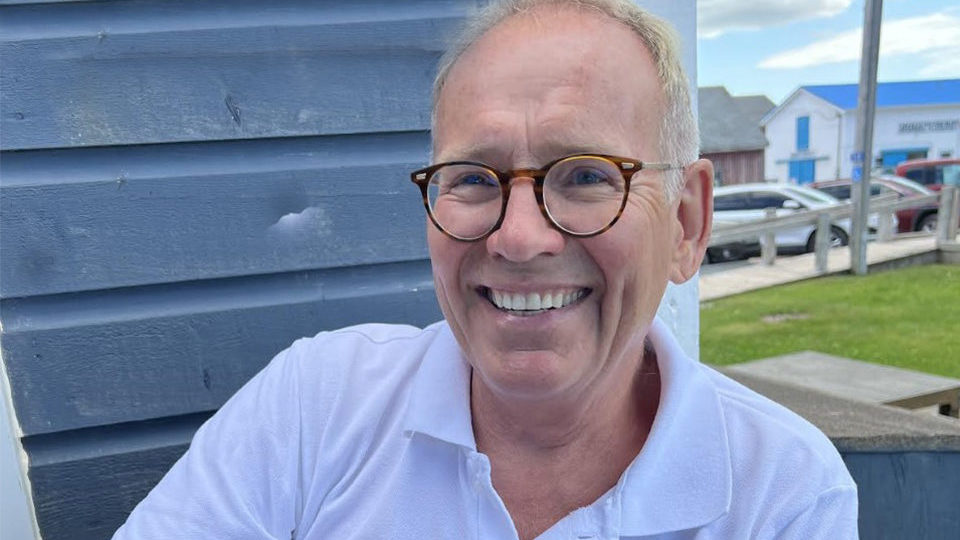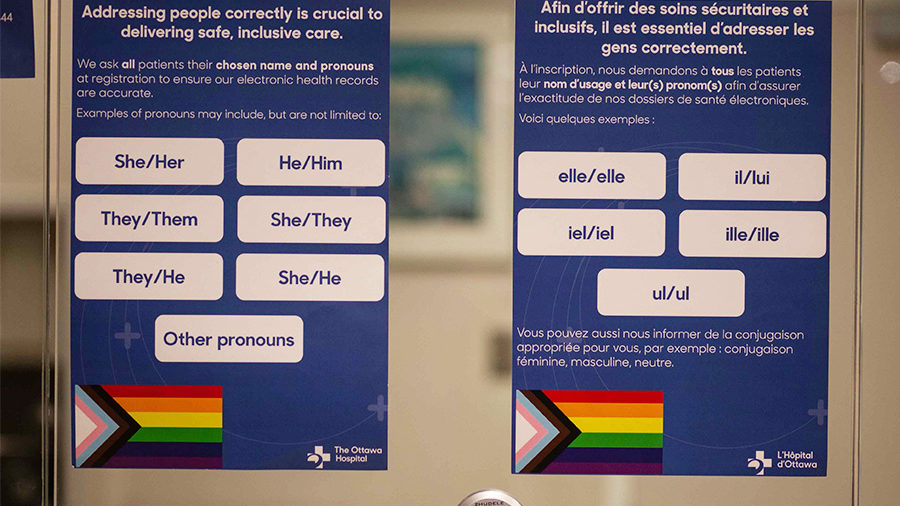How patients and family members are helping to infuse pride into The Ottawa Hospital’s DNA

Ottawa Hospital sees patients and their loved ones as important partners in care, especially when it comes to creating safer and more welcoming spaces.
Established two years ago, Ottawa Hospital’s Rainbow Patient and Family Advisory Committee (Rainbow PFAC) has provided a powerful voice for the 2SLGBTQ+ community. 2SLGBTQ+ is an initialism standing for Two-Spirited, Lesbian, Gay, Bisexual, Transgender, and Queer, with the plus standing for other sexual identities. This community has historically faced severe systemic discrimination in the healthcare system, and interactions with care providers can still be challenging.
Rainbow PFAC advisors work with key hospital decision makers to improve care for this vulnerable patient population, drawing on their experiences as patients and family members.

“Pride events and occasions are important, but we don’t just raise the flag for a week or two and that’s it for the whole year,” said Tim Hutchinson, Co-Chair of Rainbow PFAC. “The Rainbow PFAC helps us infuse pride into the DNA of the hospital.”
The Rainbow PFAC has spearheaded a number of initiatives to achieve this. Here are just a few examples of their hard work in action.
Hospital-Wide Programming
Over the years, Ottawa Hospital has initiated a number of programs to improve the quality of care for the 2SLGBTQ+ community. This includes nursing training on gender diversity and transgender health, as well as workshops teaching patients storytelling techniques so they can improve communication with their care providers.
The success of these training programs and workshops was actually the birth of our Rainbow PFAC.
“With the popularity of these programs, it became clear that the unique 2SLGBTQ+ patient experience needed to be better integrated into care at The Ottawa Hospital,” says Tim. “In response to this need, the idea of a dedicated PFAC group was proposed.”
Creating a safe space in our emergency room

For many patients, medical care begins in the emergency room. For this reason, the Rainbow PFAC has worked very closely with our intake and emergency registration team.
Rainbow PFAC co-designed a gender diversity training module for reception and emergency registration staff. The module, entitled Respectful Conversations with Gender-Specific Patients, describes how to ask about and document a patient’s gender identity and pronouns.
As standard procedure, staff now ask patients their gender identity, pronouns, and chosen name upon registration. Patients can also update their own gender identity and chosen name on myChart, our online patient portal. And when you visit the hospital, you’ll see many of our admissions and emergency registration staff wearing badges with their own pronouns.

Staff training module “Respecting Gender Diversity”.
Recently, the PFAC co-designed an in-depth gender diversity training module that has just been rolled out to all hospital staff. This new course provides even more guidance for our staff on how to create a safer space for our trans and non-binary patients.
The visibility and success of this course, as well as Rainbow PFAC’s other initiatives, has attracted the interest of many departments in the hospital, who are now seeking advice and education to improve patient care.
“Over the last two years we’ve built up an appetite and interest in the hospital,” says Tim. “It shows that we have developed a willingness to really think differently about healthcare. That was very enriching for me.”
preparation for the future
“I’m really proud that we’ve achieved a lot in two years, especially in a pandemic,” says Tim. “But there is still a lot to do.”
Rainbow PFAC has several projects on the horizon, including expanding much-needed mental health services, improving hospital discharge planning for 2SLGBTQ+ seniors, and working with Cancer PFAC to expand screening for cancers more common in the queer community.
Additional Resources
Supporting patient care and research
The Ottawa Hospital
You May Also Like …
On this website you will find general facts, advice and tips. Some of these may not apply to you. Please speak to your doctor, nurse or other member of the healthcare team to see if this information is appropriate for you. They can also answer your questions and concerns.